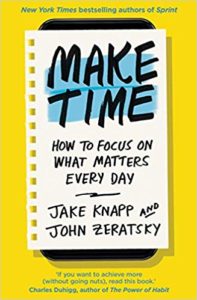Work Like a Woman by Mary Portas
Written by Ashley Kelmore, Posted in Reviews
3 Stars
Best for: People looking for a bit of a memoir mixed in with some genuinely good ideas about improving our workplace.
In a nutshell: Author Mary Portas details her career struggles rising through the ranks of department store marketing and shares her thoughts for ways to improve the workplace so it works better for all of us — men and women.
Worth quoting: “But the irony is that the whole thing is deeply emotional: wanting to smash the competition and be top dog isn’t exactly unfeeling, is it?”
Why I chose it: I’ve been working from home since moving to the UK for my partner’s job, but just started a new office gig this week. I figured I could both use a refresher on how offices work and thought this one on how they could be improved would be a good place to start. I wasn’t totally wrong, but I wasn’t right, either.
Review:
Once again, I feel as though I’ve just read a book that could have been great with the right editor. Or a better outline. The book is part memoir, part instruction manual, part argument for policy changes. In the beginning, it seemed as though each chapter would start with a bit of Ms. Portas’s life, following it with what can be learned from this vignette. But life isn’t neat and tidy, so about halfway through she seems to drop this layout, and the book suffers for it, I think.
The main premise is that the the Lean In concept is kind of bullshit — that instead of changing ourselves to fit into office culture, office culture needs to change to meet the skills and needs of women. Ms. Portas is clear in saying that she doesn’t believe all women act in certain ways though; instead, she points out that both men and women can benefit if our offices are less focused on things like competition and the bottom line and more on collaboration and balance.
There is a lot of good in this book – the chapter where she shares her company’s culture statement could be useful, and in the end she offers tips for women in each decade of life (which isn’t necessarily super helpful in some cases, because it assumes a bit of a linear career progression). But I found it a bit frustrating that so very much of the book focused on accommodating childcare. I’d say maybe 1/4 to 1/3 of the book was really focused on this, as though this is the only issue that women face challenges with. And it obviously is a huge issue, but there wasn’t any recognition that one might need work balance for reasons other than caring for children or elderly parents. It seems to be a common world view, and I find it frustrating, as though other life pursuits or challenges don’t matter as much.
I was hoping this would be one of those books that I’d be recommending everyone read, but alas, it is not. Wasn’t a waste of time, but it’s definitely getting donated to the little library at my tube station next time I head out.






